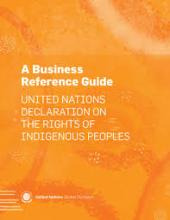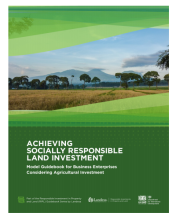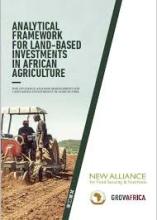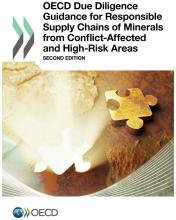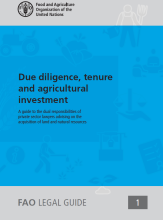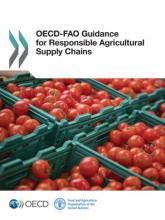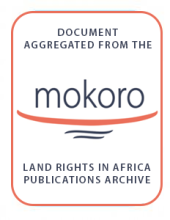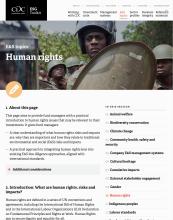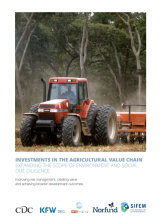Resources for Due diligence
A Business Reference Guide - United Nations Declaration on the Rights of Indigenous Peoples
This guide aims to help businesses -companies, investors, buyers- understand, respect, and support the rights of indigenous peoples by illustrating how these rights are relevant to business activities. It encourages business to engage in meaningful consultation and partnership with indigenous peoples on a local level and to adapt the principles discussed and practices suggested here to their distinct situations and contexts. It
• outlines key actions business can take in relation to indigenous peoples’ rights, including policy commitment, due diligence, consultation and consent-seeking, grievance mechanisms, mitigation and remediation, and
• provides a description of each right in the UN Declaration on the Rights of Indigenous Peoples, suggests practical actions that business can take to respect and support each right, and examples to help illustrate those suggested actions.
Achieving Socially Responsible Land Investment - Model Guidebook for Business Enterprises Considering Agricultural Investment
This Guidebook for Business Enterprise includes instructions and tailorable tools for business professionals seeking to design and implement an agricultural investment in a socially responsible manner that recognises and protects community land rights. It provides support for implementing best practices related to understanding and respecting land rights in the context of an investment. It is intended to be used alongside additional resources that focus on other critical aspects of investment design and implementation, such as guidance and best practices for understanding and mitigating environmental impacts. It is intended to be adaptable to different contexts and investment models.
Analytical Framework for Land-Based Investments in African Agriculture - Due Diligence and Risk Management for Land-Based Investments in Agriculture
The Analytical Framework is a tool designed to help investors ensure that their land-based investments are inclusive, sustainable, transparent, and respect human rights. It can help investors and companies assess whether a project is adhering to best practices, and if not, to find out how to address deficiencies.
Due Diligence Guidance for Responsible Supply Chains of Minerals from Conflict-Affected and High-Risk Areas
This Guidance sets out the steps companies involved in minerals supply chains should take to identify and address actual or potential risks in order to prevent or mitigate adverse impacts associated with their activities. It provides guidance on how they can apply due diligence for responsible supply chains of minerals from conflict-affected and high-risk areas as an on-going, proactive and reactive process through which they respect human rights and do not contribute to conflict.
Due diligence, tenure and agricultural investment. A guide to the dual responsibilities of private sector lawyers advising on the acquisition of land and natural resources
This guide examines the role and responsibilities of private sector lawyers when advising their clients on agricultural investments. It discusses how lawyers can prevent and/or address and mitigate adverse human rights impacts on holders of legitimate tenure rights when advising on or conducting their due diligence and risk assessment processes on behalf of their clients. It provides a number of key recommendations, including on how to align legal advice with the VGGT and CFS-RAI.
Guidance for Responsible Agricultural Supply Chains
This guide aims to help enterprises observe standards of responsible business conduct and undertake due diligence along agricultural supply chains in order to ensure that their operations contribute to sustainable development. It provides information on
• a model enterprise policy outlining the standards that enterprises should observe to build responsible agricultural supply chains,
• a framework for risk-based due diligence describing the five steps that enterprises should follow to identify, assess, mitigate and account for how they address the adverse impacts of their activities,
• description of the major risks faced by enterprises and the measures to mitigate these risks, and
• Guidance for engaging with indigenous peoples.
Guide to due diligence of agribusiness projects that affect land and property rights
This guide aims to help all stakeholders and companies who have a link with investments that affect land and property rights apply due diligence in their operations. It will provide them with guidance to better monitor compliance with the recently adopted Voluntary Guidelines, but also with other relevant instruments such as the Principles for Responsible Investment in Agriculture and Food Systems, and thereby address concerns among rural communities and civil society groups that investments in partner countries are sustainable, that the added value they generate is shared equitably between the farmers and enterprises involved, and local land and property rights are respected.
Human Rights
This guide provides fund managers with a practical introduction to human rights issues that may be relevant to their investments. It aims to provide
• a clear understanding of what human rights risks and impacts are, why they are important and how they relate to traditional environmental and social (E&S) risks and impacts, and
• a practical approach to integrating human rights lens into existing E&S due diligence approaches, aligned with international standards.
Integrated Mine Closure: Good Practice Guide
This document is intended to promote a disciplined approach to integrated closure planning and increase the uniformity of good practice across the sector. The concepts apply equally to both large and small mining companies.
Integrated mine closure is a dynamic and iterative process that considers environmental, social and economic factors from an early stage of mine development and throughout the life of an asset. Fundamental to this process is the need to consider closure as an integral part of the mine operations’ core business. The structure of the guide reflects this process, providing good practice guidance to key elements of mine closure planning and implementation (see infographic).
Investments in the Agricultural Value Chain: Expanding the Scope of Environment and Social Due Diligence - Improving Risk management, Creating Value and Achieving Broader Development Outcomes
This report provides guidance for development finance institutions and investors seeking to understand and manage environmental and social issues responsibly at different stages of the value chain. It provides
• information on ways investors can expand the scope of due diligence to further improve E&S risk management and drive value through supply chains,
• initial and practical information about the links between upstream and downstream actors in the value chain, including primary producers and project-affected communities, and
• a more integrated approach to E&S risk management, value creation and development.


